Related Research Articles

Gulliver's Travels, or Travels into Several Remote Nations of the World. In Four Parts. By Lemuel Gulliver, First a Surgeon, and then a Captain of Several Ships is a 1726 prose satire by the Anglo-Irish writer and clergyman Jonathan Swift, satirising both human nature and the "travellers' tales" literary subgenre. It is Swift's best-known full-length work and a classic of English literature. Swift claimed that he wrote Gulliver's Travels "to vex the world rather than divert it".

Judy Garland was an American actress and singer. She attained international stardom and critical acclaim as an actress in both musical and dramatic roles, as a recording artist, and on the concert stage. Renowned for her versatility, she received an Academy Juvenile Award, a Golden Globe Award, and a Special Tony Award. Garland was the first woman to win the Grammy Award for Album of the Year, which she won for her 1961 live recording titled Judy at Carnegie Hall.
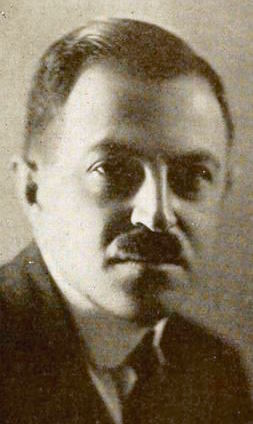
Max Fleischer was an American animator, inventor, film director and producer, and studio founder and owner. Born in Kraków, Fleischer immigrated to the United States where he became a pioneer in the development of the animated cartoon and served as the head of Fleischer Studios, which he co-founded with his younger brother Dave. He brought such comic characters as Koko the Clown, Betty Boop, Popeye, and Superman to the movie screen, and was responsible for several technological innovations, including the rotoscope, the "follow the bouncing ball" technique pioneered in the Ko-Ko Song Car-Tunes films, and the "stereoptical process". Film director Richard Fleischer was his son.

Arthur Bowden Askey, was an English comedian and actor. Askey was known for his short stature and distinctive horn-rimmed glasses, and his playful humour incorporating improvisation and catchphrases including "Hello playmates!", "I thank you" and "Before your very eyes".
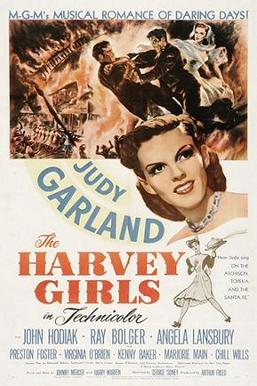
The Harvey Girls is a 1946 Technicolor American musical film produced by Arthur Freed for Metro-Goldwyn-Mayer. It is based on the 1942 novel of the same name by Samuel Hopkins Adams, about Fred Harvey's Harvey House waitresses. Directed by George Sidney, the film stars Judy Garland and features John Hodiak, Ray Bolger, and Angela Lansbury, as well as Preston Foster, Virginia O'Brien, Kenny Baker, Marjorie Main and Chill Wills. Future star Cyd Charisse appears in her first speaking role on film.

Little Nellie Kelly is a 1940 American musical-comedy film based on the stage musical of the same title by George M. Cohan which was a hit on Broadway in 1922 and 1923. The film was written by Jack McGowan and directed by Norman Taurog. Its cast included Judy Garland, George Murphy, Charles Winninger and Douglas McPhail.
Roger Edens was a Hollywood composer, arranger and associate producer, and is considered one of the major creative figures in Arthur Freed's musical film production unit at Metro-Goldwyn-Mayer during the "golden era of Hollywood".
Samuel Timberg was an American musician and composer for the stage, film studios, and television.

Gulliver's Travels is a 1939 American animated musical fantasy film produced by Max Fleischer and directed by Dave Fleischer for Fleischer Studios. Released to cinemas in the United States on December 22, 1939, by Paramount Pictures, the story is a very loose adaptation of Jonathan Swift's 1726 novel of the same name, specifically only the first part of four, which tells the story of Lilliput and Blefuscu, and centers around an explorer who helps a small kingdom who declared war after an argument over a wedding song. The film was Fleischer Studios' first feature-length animated film, as well as the second animated feature film produced by an American studio after Walt Disney Productions' Snow White and the Seven Dwarfs, as Paramount had commissioned the feature in response to the success of that film. The sequences for the film were directed by Seymour Kneitel, Willard Bowsky, Tom Palmer, Grim Natwick, William Henning, Roland Crandall, Thomas Johnson, Robert Leffingwell, Frank Kelling, Winfield Hoskins, and Orestes Calpini.
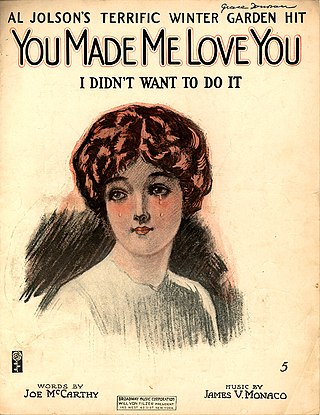
"You Made Me Love You (I Didn't Want to Do It)" is a popular song from 1913 composed by James V. Monaco with lyrics by Joseph McCarthy. It was introduced by Al Jolson in the Broadway revue The Honeymoon Express (1913), and used in the 1973 revival of the musical Irene.

Gulliver's Travels Beyond the Moon, also known as Space Gulliver, is a 1965 Japanese animated feature that was released in Japan on March 20, 1965 and in the United States on July 23, 1966.
Willard Gustav Bowsky was an American animator best known for his work at Fleischer Studios in New York City and Miami, Florida, where he worked on cartoons featuring Betty Boop, Popeye the Sailor, and Superman, in addition to two feature-length animated films. Fellow Fleischer animator Shamus Culhane described Bowsky as "what one might call a pre-McCarthy, gung ho, all-American Babbitt." He was described as being outspoken with anti-Semitic remarks, but skilled at animating complicated perspective shots and directing many of the jazz-influenced cartoons produced by the studio.
ThomasA.Palmer was an Italian-American animator, cartoon director, and U.S. training film supervisor. He was active in the animation industry throughout the 1920s and 1930s and was best known for his animation work at Walt Disney Productions. He spent a good chunk of his later career directing training films for the United States Army.
King for a Day is a 1940 animated short film featuring Gabby released by Paramount Pictures in the Max Fleischer Cartoon series. The cartoon was released on October 18, 1940. It was the first entry of the Gabby series, the spin-off cartoon series of Gulliver's Travels.

Girl Crazy is a 1943 American musical film starring Judy Garland and Mickey Rooney. Produced by the Freed Unit of Metro-Goldwyn-Mayer, it is based on the stage musical Girl Crazy – which was written by Guy Bolton and Jack McGowan, with music and lyrics by George and Ira Gershwin. It was the last of Garland and Rooney's nine movies as co-stars, the pair appearing only once more together on film, as guest stars in 1948's Words and Music.
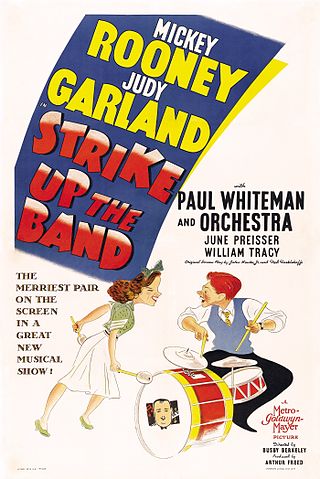
Strike Up the Band is a 1940 American musical film produced by the Arthur Freed unit at Metro-Goldwyn-Mayer. The film was directed by Busby Berkeley and stars Mickey Rooney and Judy Garland, in the second of a series of musicals they co-starred in, after Babes in Arms, all directed by Berkeley. The story written for the 1927 stage musical Strike Up the Band, and its successful 1930 Broadway revision, bear no resemblance to this film, aside from the title song.
Winston Singleton Sharples was an American composer known for his work with animated short subjects, especially those created by the animation department at Paramount Pictures. In his 35-year career, Sharples scored more than 700 cartoons for Paramount and Famous Studios, and composed music for two Frank Buck films, Wild Cargo (1934) and Fang and Claw (1935).
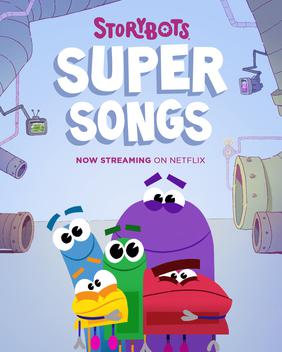
StoryBots Super Songs is an American animated children's television series based on the characters from the StoryBots educational apps and videos. It was produced by JibJab Productions and released by Rainmaker Entertainment in collaboration with Powerhouse Animation Studios. Episodes have also been released in full monthly on StoryBots' official YouTube channel.

The cultural influence of Gulliver's Travels has spanned centuries.
References
- 1 2 Jerry Beck (2005), The Animated Movie Guide, p. 100, ISBN 1569762228
- ↑ Christina L. Baade (2012), Victory Through Harmony, p. 88, ISBN 978-0195372014
- ↑ It's Hap, Hap, Hapy Day by Judy Garland - Topic on YouTube
- ↑ Gulliver Travels at 78|Cartoon Research
- ↑ Tunes From The 'Toons: Internet Archive
- ↑ It's A Hap-Hap-Happy Day (1940 Recording) by Arthur Askey - Topic on YouTube